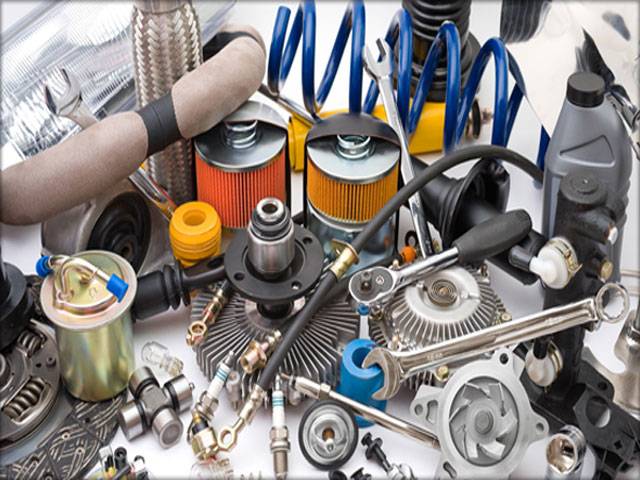LAHORE - The Pakistan Association of Automotive Parts & Accessories Manufacturers (PAAPAM), the representative body of automotive vending industry, in its budget proposals submitted to the Finance Ministry and other concerned government agencies, has demanded the government to bring all untaxed sectors into tax net, including agriculture, instead of twisting existing tax payers’ arm.
The budget documents called for minimum rate of duty on import of raw materials along with well-targeted measures to discourage import of finished products to achieve the ultimate target of localisation. In addition, it urged the central bank to bring down the interest rate to single digit for being a prerequisite to expedite the process of industrialisation. “Presently, there are no incentives for the people who regularly pay their taxes. In order to encourage more people to join the tax net, special incentives should be provided to the scrupulous taxpayers as the undocumented economy is a very serious threat to the economy,” observed Syed Nabeel Hashmi, the chairman of PAAPAM and BFP.
Discussing the budget proposals prepared by the PAAPAM, he urged the authorities that import of auto parts, automobiles, 2/3 wheelers and specialized vehicles, from India, should be allowed only after compliance with PSQCA quality standards.
“PAAPAM favours step-wise trade opening with India after structural reforms, policy changes and capacity building of govt departments, besides managing Pakistan’s trade policies and import regimes.” He suggested the TDAP to initiate a detailed study on the impact of opening doors to India with a focus on auto sector. He said that the Paapam in its budget proposals, has requested that TDAP should be given a target of supporting over 200 auto parts manufacturers annually with a target of $ 250 million export by 2014.
The budget paper stated that change of auto parts import regime (PCTs) from Kg’s to units is necessary, urging the FBR to simplify auto parts import price valuations procedures.
The auto vending industry demanded that turnover tax (1pc) should be dropped or reverted back to the previous rate of 0.5pc) to give relief to the auto and vendor industries, whose profitability has been dismal.
Manufacturers who are enlisted with Large Taxpayer Unit should be exempted from paying adjustable advance income tax under Section 148 on the import of raw materials and components etc for use in their own production. Withholding Tax on the proceeds of exported goods at 1pc should be reduced to 0.5pc as recommended by the Engineering Development Board (EDB) in the National Engineering & Exports Development Strategy (NEEDS) report in 2010.
For documentation of economy, purchases of spare parts and accessories of vehicles from unregistered should be disallowed, while insertion of a sub-section in section 21 of the Income Tax Ordinance, 2011, and 22pc sales tax should be imposed on imports of spare parts. Rs 5 million exemption cap on turnover should be removed for autoparts traders.
Section 8-B of Sales Tax Act should be abolished while custom duty on cars and motorcycles should be reduced as laid down in AIDP. To attract investment, corporate tax rate should be brought down from 35pc to 30pc.
Over the issue of used cars import, the PAAPAM budget papers suggested the govt to impose necessary safeguards for vibrant industry, however the industry must also respond with an aggressive localization drive that shall enable it to place better priced vehicles in the Pakistan market.
It called for reintroduction of the scheme for refinancing facility for modernization of small and medium enterprises. Current SME is classified with assets under Rs 100 million which with existing inflationary trends is a very low bench mark. This may be enhanced to Rs 250 million.
In order to make available affordable vehicles to the Pakistani public a special consumer finance/leasing schemes be reintroduced for cars (linked with local contents) to promote growth of local auto industries, besides creating employment and generating investments in high cost components and assemblies.
Centralized distribution and national grid regimes be done away with while all DISCO’s may be provincialized with individual distribution responsibilities and line losses elimination. Circular debt may be paid off from the PSDP and BISP funds and POL supply may be made only to 90pc+ efficient units on priority whilst old and inefficient units be upgraded or shut down. Natural gas availabilities and distributions be made transparent via internet on an online basis.
Tuesday, April 16, 2024
Paapam calls for bringing untaxed sectors into net

IHC dismisses Bushra Bibi's plea seeking her shifting to Adiala Jail from Bani Gala
4:25 PM | April 16, 2024
Punjab CM visits Tehsil Headquarter Hospital Murree
3:25 PM | April 16, 2024
High-level Saudi delegation in Islamabad to hold meetings with Pakistani leadership
2:07 PM | April 16, 2024
Saudi foreign minister meets PM Shehbaz Sharif
1:17 PM | April 16, 2024
Decision to retaliate against Iran attacks rests with Israel, says Pentagon
1:05 PM | April 16, 2024
Political Reconciliation
April 16, 2024
Pricing Pressures
April 16, 2024
Western Hypocrisy
April 16, 2024
Policing Reforms
April 15, 2024
Storm Safety
April 15, 2024
Democratic harmony
April 16, 2024
Digital dilemma
April 16, 2024
Classroom crisis
April 16, 2024
Bridging gaps
April 16, 2024
Suicide awareness
April 15, 2024
ePaper - Nawaiwaqt
Advertisement
Nawaiwaqt Group | Copyright © 2024





